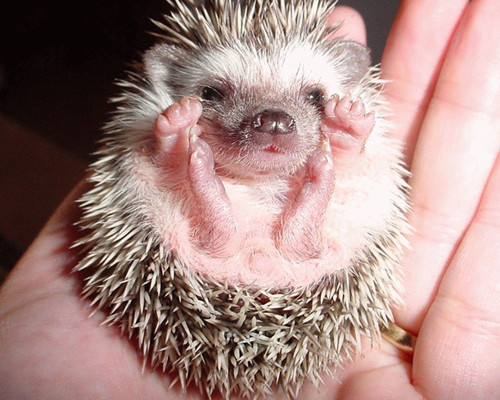Who are the animals that have most inspired people in 2013 to add their voices to the growing movement for animals? Leading up to the end of the year, AWP is celebrating the causes, campaigns and characters that have been at the forefront of helping make history for animals. Each day until the end of the year we’ll be focusing on another story. Please share far and wide.
Day 7: The Hedgehog
2013 did not begin well for the UK’s hedgehogs. Ecologists who produced the Living with Mammals survey for the People’s Trusts for Endangered Species found that numbers of hedgehogs had fallen by over a third between 2003 and 2012.
That rate of decline is equivalent to the loss of tigers in the wild. In the bird world, it would raise a ‘red alert’.
Hedgehogs are part of British folk- and natural-lore, and have been immortalized as Beatrix Potter’s Mrs Tiggy-Winkle and in Philip Larkin’s poetry. But the small creature famous for rolling up into a ball when threatened is an increasingly rare sight in the our gardens, parks and hedgerows.
The ecologists responsible for the survey said likely causes for the decline are habitat loss, poor management of hedgerows and fragmentation of habitat, due to new roads, housing and other developments. Tens of thousands of hedgehogs are killed by road traffic each year.
To paint an even worse picture – a report released later in 2013 from the organization Living with Environmental Change shows that the population of hedgehogs has fallen from 36million in 1950, to just one million.
But hedgehogs clearly mean a lot to the British public – in July they were voted Britain’s National Species. While New Zealand has the kiwi and France the cock, Britain has never had a national animal icon—until this year, that is, according to BBC Wildlife magazine.
Hugh Warwick, an ecologist and author of a number of books on hedgehogs and who also speaks on behalf of the British Hedgehog Preservation Society, was overjoyed.
“A question I am asked many times is brought up again by this poll – why do we care so much about the hedgehog?” wrote Hugh. “I think it is tied in to how our lives have changed. The hedgehog, by dint of its behaviour, allows us to get close to a genuinely wild animal, and this is important. It is a win-win situation. We get a thrill of nature – which is good for us – and this in turn shifts us from being passive consumers of wildlife images to activists who want to help save what we have left. The hedgehog is the most perfect icon – let us embrace the spiny beast (carefully) and let us make sure that there are hedgehogs to thrill generations to come.”
Political representation for animals can help prioritize their plight and work to have joined up thinking around policies on built-environment developments that affect our threatened species.
As Hugh Warwick tweeted last week in response to the plans to expand Britain’s airports: “Again @BBCr4today ignores ecology and just focuses on economy when talking #airports – madness”. The Animal Welfare Party wholeheartedly agrees with Hugh, and with the need to protect our hedgehogs.
Can you make 2014 an even safer place for hedgehogs by becoming a visionary for animals? Support the Animal Welfare Party’s campaign in the EU Elections in May. If you live in London you can PLEDGE TO VOTE, and if you live anywhere and care about animals you can support us in our campaign to raise funds. Fundraising is crucial in our efforts to make history for animals. Make the difference now.
Image of hedgehog © Last Human Gateway
For more information on what you can do, visit the British Hedgehog Preservation Society.







Hiya that image is of an African Pygmy hedgehog, not a british one.